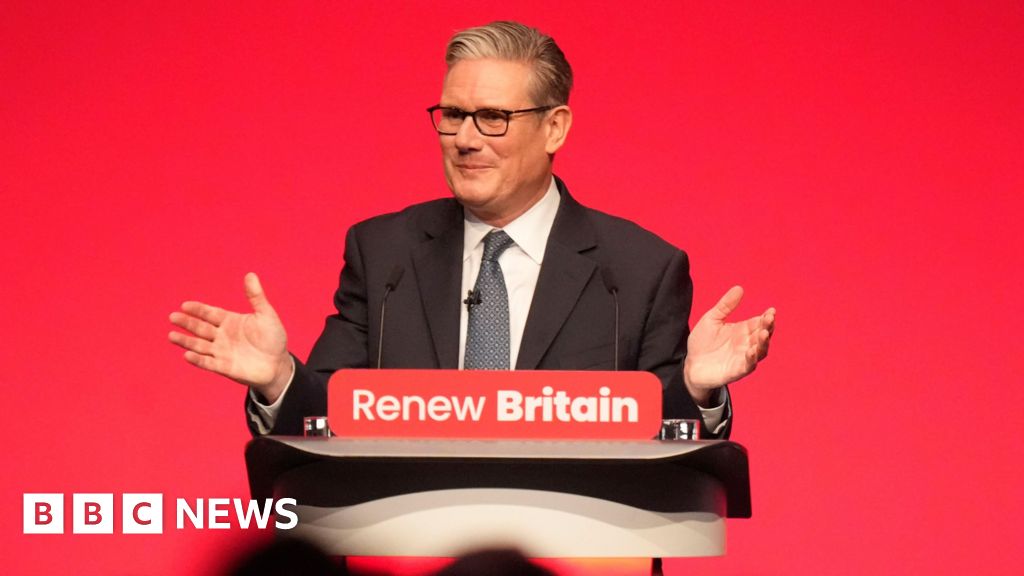Labour Leader Starmer Unveils Bold Vision: Targets Reform UK, Reshapes Education, and Redefines Patriotism
Labour Leader Starmer Unveils Bold Vision: Targets Reform UK, Reshapes Education, and Redefines Patriotism

In a pivotal keynote address at Labour’s annual conference in Liverpool, Sir Keir Starmer rallied his party, outlining a stark choice for Britain’s future and signaling significant policy shifts. The speech, delivered just hours ago, focused heavily on confronting Reform UK, recalibrating the party’s stance on migration, and introducing a groundbreaking educational policy.
Starmer launched a direct assault on Reform UK and its leader, Nigel Farage, framing the upcoming political contest as an existential battle for the nation’s soul. He challenged Farage’s perceived negativity, stating, “He can’t. He doesn’t like Britain. Doesn’t believe in Britain.” This marked a strategic pivot, positioning Reform UK as Labour’s primary adversary rather than the Conservatives.
Addressing the contentious issue of migration, Starmer acknowledged discomfort among some Labour MPs regarding plans to tighten settlement rules. He emphasized the necessity of “decisions that will not always be comfortable,” departing from past Labour approaches by questioning the sole reliance on immigration for workforce needs. He recounted a poignant encounter with a woman in Oldham, illustrating a perceived disconnect between Labour and working-class concerns on this issue.
A key policy announcement saw Starmer pledge to scrap the long-standing commitment to send 50% of young people to university, a target set by Tony Blair. Instead, the government would aim for two-thirds of young people to pursue either university or “gold standard apprenticeships,” backed by investment in new technical excellence colleges. This move, rooted in Starmer’s personal narrative as the son of a toolmaker, aims to elevate vocational training.
Finally, Starmer sought to reclaim the narrative on patriotism, asserting Labour as “the patriotic party” and the party of “national renewal.” To a hall filled with Union Flags, he declared that these symbols “belong to all of us and we will never surrender them,” countering those who might use them for division. He defined patriotism through the lens of serving the “common good” and praised ordinary Britons for their contributions, disputing the notion that Britain is “broken.”
Disclaimer: This content is aggregated from public sources online. Please verify information independently. If you believe your rights have been infringed, contact us for removal.